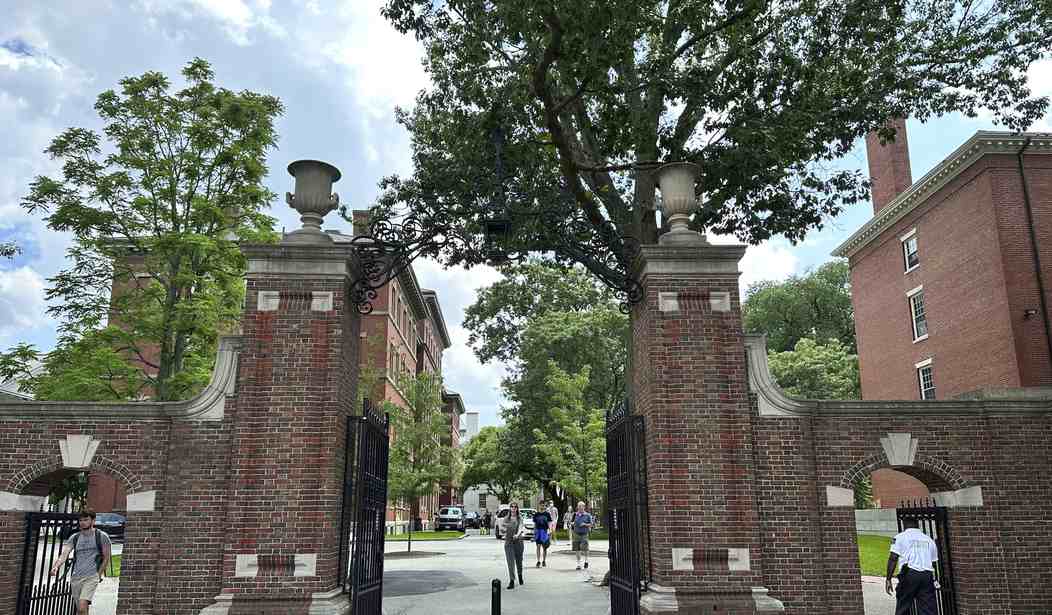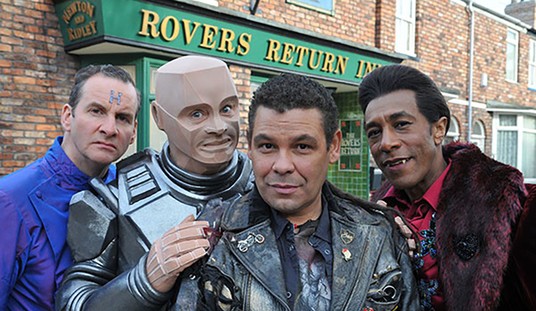In this episode of "The No-Longer-Hallowed Halls of Academia"...
As I wrote in September, with public trust in higher education in America continuing to plummet to new lows, colleges and universities are facing a multi-faceted crisis, including, in many cases, a lack of focus on practical education, activist politicization, declining enrollment, and as a result, financial concerns.
READ MORE:
'Academic Echo Chamber': Trust in Higher Education Plummets to Record Low — Is It Any Wonder?
Gettysburg College in Pennsylvania is one such institution, particularly with respect to declining revenue.
The college has been struggling for years with falling revenue and difficulty attracting student applications, to the point of reducing faculty and even shutting down a historic journal. To make matters worse, the college is now under fire for an admission counselor's snarling anti-Trump posts.
Lupe Lazaro, who's also the regional representative for Long Island and New York City, recently blasted Republican presidential nominee Donald Trump and his supporters as "pieces of s**t."
Lazaro claimed that Trump supporters have no problem with “misogyny,” “rape,” “homophobia,” “xenophobia,” trying to “lynch the vice president,” and plotting to “overthrow democracy,” according to social media posts.
“You are no different than the piece of s**t human you stand behind,” Lazaro concluded in one post.
While neither Gettysburg College nor Lupe Lazaro is unique in their vile rhetoric against Trump and his legion of followers, this example is yet another stark reminder of the degradation occurring on college and university campuses across America. Students at many institutions are bombarded with radical left-wing views from the moment they arrive.
So is it any wonder that, for example, we see pro-Hamas, anti-Israel protests around the country? Radical leftist professors are programming students to attack democracy and conservatism while defending terrorist organizations that murder, torture, and rape civilians. Moreover, when questioned, many or most of the protesters have zero clue what or why they're protesting.
As George Washington University Law School Professor Jonathan Turley, noted, Pennsylvania is "famously divided right down the middle between Trump and Harris supporters." In addition, Long Island, where, as I mentioned, Lazaro is a regional representative, has a high concentration of Trump supporters.
As Turley sees it:
It is difficult to see how some applicants would feel that they had a fair chance with the college if they are openly supporters of the former president.
The fact is Lazaro is just a counselor and her views should not be ascribed to the college. Moreover, I have long supported the right of academics to speak on social media and outside of their institutions, even when they espouse hateful views.
The problem has been a double standard that often seems to apply to controversial statements from the left as opposed to the right. As previously discussed, such statements include professors writing about “detonating white people,” abolish[ing] white people, denouncing police, calling for Republicans to suffer, strangling police officers, celebrating the death of conservatives, calling for the killing of Trump supporters, supporting the murder of conservative protesters and other outrageous statements.
We also discussed the free speech rights of University of Rhode Island professor Erik Loomis, who defended the murder of a conservative protester and said that he saw “nothing wrong” with such acts of violence. (Loomis was later made Director of Graduate Studies of History at Rhode Island).
The list goes on and on, with no end in sight. Again, is it any wonder that Americans' trust continues to swirl down the toilet?
ALSO READ:
'We Must Act': House Republicans Announce Plan to Crack Down on Antisemitism on University Campuses
In a June 2024 publication, University Business reported:
Higher education powerhouses abroad are slowly increasing their reputation as over two-thirds of American universities slipped, according to this year’s international university ranking by Quacquarelli Symonds (QS), a global education strategy group.
Six American institutions ranked in the top 100 fell 10 places or more. The University of Chicago, for one, crashed out of the top 20 after falling 10 places, now ranking 21st. Of the countries with 30 or more ranked universities, none recorded a higher proportion of drops than the U.S., QS states.
On the other hand, 68% of China’s ranked universities improved their position. Likewise, all of India’s 10 highest-ranked universities have improved their position, which could spell trouble for American universities relying on the country’s high yield of international students for tuition dollars.
Jessica Turner, CEO of Quacquarelli Symonds, further explained:
With both enrollment numbers and the financial position of many American institutions ringing alarm bells, the US cannot afford to sacrifice its allure among the global international student community.
Considering that Americans' trust in US higher education continues to fall, leading to lower enrollment numbers and increasing financial problems, as contrasted with the rankings of universities in China and India, as noted above, it doesn't take an academician to connect the dots between the radicalization of America's universities and their increasing crises.
Then again, radical academicians are largely to blame.















